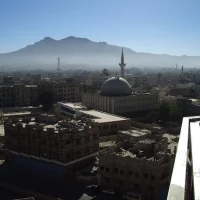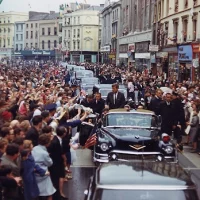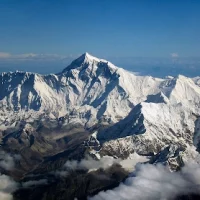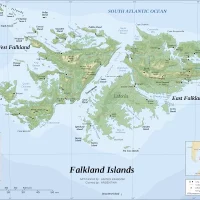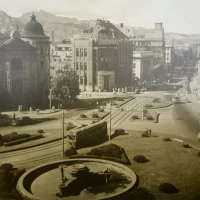Yemen has experienced violence and poverty in recent decades, but for centuries was a pivotal crossroads for trade and travel. Once the center of civilization, commerce and wealth on the Arabian Peninsula, Yemen prospered through agriculture and the cultivation and marketing of spices and aromatics. In the twentieth century, Yemen was cleaved in two separate nations… Read More "North Yemen: Ambassador to a Divided Land"
Relations between the U.S. and Ireland have traditionally been strong, thanks to common ancestral ties, history and shared values. Irish citizens immigrated to the thirteen Colonies, fought in the War of Independence and were among the first to drive cattle westward. Prompted largely by the Great Irish Famine, from 1820 to 1860 two million Irish… Read More "Ireland and the U.S.: The Best of Friends, Except When They Weren’t"
The goal of public diplomacy (PD) is defined as supporting the achievement of U.S. foreign policy goals and objectives, advancing national interests, and enhancing national security. It is done by informing and influencing foreign publics and strengthening the relationship between the people of the U.S. and citizens of the rest of the world. In Washington,… Read More "Revolutionizing Public Diplomacy: U.S. Embassy Tokyo in the 1970s"
In 1982 a long-simmering dispute between the United Kingdom and Argentina over a small group of islands – the Falklands for the British, the Malvinas for the Argentinians – erupted into war. The disagreement arose from a dispute that goes back to the 1700’s when France, Spain, and Britain all tried to claim and settle the… Read More "Looking at the War in the Falklands/Malvinas from Both Sides Now"
Throughout the Cold War, democratic and communist nations waged a “war of ideas.” The United States, seeking to expose the disadvantages of communism and to encourage democracy, engaged in numerous media campaigns targeted at influencing peoples in zones of Cold War conflict. The U.S. State Department, along with branches of the American military and other… Read More "Picturing the “War of Ideas”: Wartime Film-Making in Korea"
Between Iraq and a Hard Place: Declared Persona Non Grata by Saddam
Iraq expelled an American diplomat stationed in Baghdad on November 17, 1988 for having contacts with Iraq’s Kurdish minority. Haywood Rankin, head of the American Embassy’s political section, was forced to leave the country after he and a British diplomat returned to Baghdad from a trip to Kurdistan that had been approved by Iraqi authorities.… Read More "Between Iraq and a Hard Place: Declared Persona Non Grata by Saddam"
Soft Power in a Cold War: Challenges of Reaching out to the Soviets
The “Iron Curtain” was a term used to denote the efforts of the Union of Soviet Socialist Republics to block its citizens from contact with the West. It persisted from the end of World War II until the end of the Cold War. Throughout those decades, the U.S. endeavored to breach the Curtain and reach… Read More "Soft Power in a Cold War: Challenges of Reaching out to the Soviets"
Grapes of Wrath and Strained Relations with Chile
Grocery stores throughout the United States pulled tons of grapes from their shelves when traces of cyanide were found in two grapes shipped from Chile to Philadelphia on March 13, 1989. The Commissioner of the Food and Drug Administration advised Americans to get rid of all fruit in their homes unless they were certain it was… Read More "Grapes of Wrath and Strained Relations with Chile"
A Sketch in Time: Cape Verde from an Ambassador’s View
The nation of Cape Verde, now known as Cabo Verde, is a group of islands located off the western coast of Africa. Its total territory is slightly larger than Rhode Island, and its citizens number just over 550,000 inhabitants. The United States and Cape Verde have deep historic links. Cape Verdeans have long been known… Read More "A Sketch in Time: Cape Verde from an Ambassador’s View"
Mission Unspeakable: When North Koreans Tried to Kill the President of South Korea
On October 9, 1983, while South Korean President Chun Doo-Hwan was on a visit to Rangoon, Burma to lay a wreath at the Martyr’s Mausoleum of Swedagon Pagoda, a bomb concealed in the roof exploded, killing 21 people including four senior South Korean officials. President Chun was spared because his car had been delayed in… Read More "Mission Unspeakable: When North Koreans Tried to Kill the President of South Korea"

